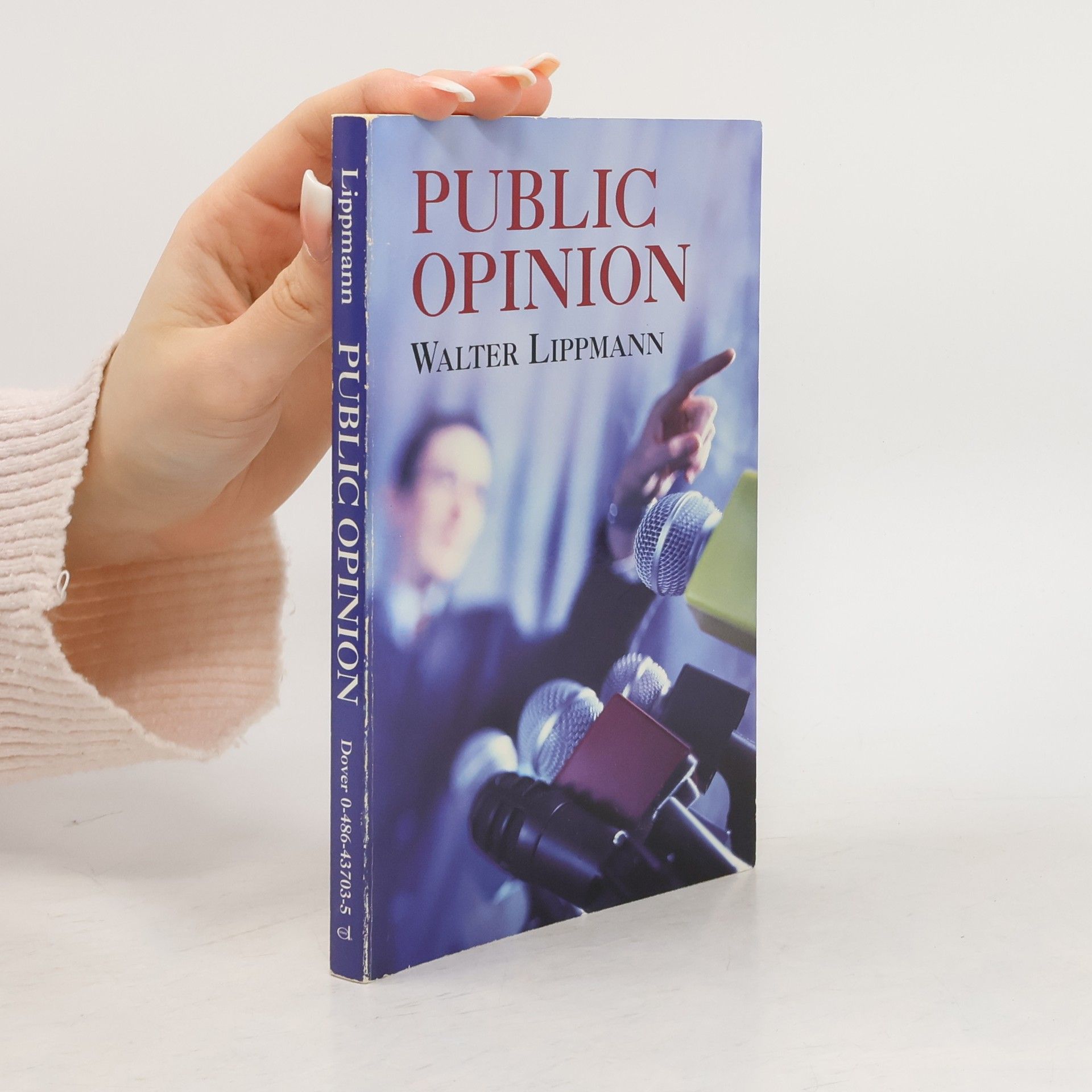Walter Lippmann Book order (chronological)
Walter Lippmann was an American intellectual, writer, reporter, and political commentator who gained notoriety for being among the first to introduce the concept of the Cold War. Lippmann was twice awarded the Pulitzer Prize for his syndicated newspaper column, "Today and Tomorrow."







The Walter Lippmann Reader
A Preface to Politics, Liberty and the News, Public Opinion, The Phantom Public
- 526 pages
- 19 hours of reading
This comprehensive omnibus edition features Walter Lippmann's four pivotal works that significantly influence media studies, political science, and social psychology. As a two-time Pulitzer Prize-winning journalist, Lippmann's insights and theories have shaped modern journalism and continue to resonate in contemporary discussions about media and society.
In drei bahnbrechenden Texten formuliert der Pulitzer-Preisträger Walter Lippmann Anfang des 20. Jahrhunderts eine elementare Kritik an den Medien als Bedrohung für die Demokratie und als Gefahr für den Wert der Freiheit im Allgemeinen. Lippmann entwickelt seine zentrale These: Freiheit und Wahrheit sind unverzichtbar miteinander verbunden. Zudem prangert er die Neigung der Medien und der Journalisten an, die Wahrheit zu verzerren, indem sie ihre eigene Agenda und ihre eigenen Ziele fördern, anstatt den wahrheitsgemäßen Austausch von Fakten und den freien Fluss von Ideen zu ermöglichen.
The Phantom Public
- 198 pages
- 7 hours of reading
In an era disillusioned with politicians and "direct democracy," Walter Lippmann's work remains highly relevant. It showcases his critical perspective on the challenges facing American democracy. Antipopulist in nature, the volume defends elitism as a legitimate intellectual stance with historical roots in the American experience. Lippmann's realistic portrayal of the American governmental system resonates today, particularly his depiction of the "disenchanted man" who has lost faith in both democracy and reform. He argues that the average voter lacks the capacity for effective governance, suggesting that the so-called public is merely a "phantom." In policy-making, the key distinction lies not between experts and amateurs, but between insiders and outsiders. Lippmann questions the fundamental assumptions of Progressive politics and any theory that claims to empower the populace in decision-making. Ronald Steel, in his biography of Lippmann, hailed this work as one of his most compelling and insightful, recognizing its critique of traditional democratic theory. As apathy towards the political system grows among Americans, this classic text is essential for students, educators, and researchers in political science and history.
The speech by President Wilson in May 1916 marked a pivotal shift from American isolationism to a commitment to global engagement and peace. It signaled America's readiness to join a League of Peace, emphasizing that any military involvement would prioritize international stability over imperialistic ambitions. Walter Lippmann's address highlights this foundational moment in U.S. foreign policy, illustrating the nation's intention to uphold global order and peace rather than pursue expansionist goals.
A Preface to Politics
- 148 pages
- 6 hours of reading
The book, a significant classical work published over a century ago, explores essential political concepts that have remained relevant throughout history. Aiming to preserve its importance for future generations, Alpha Editions has republished it in a modern format, ensuring clarity and readability through reformatting and retyping rather than relying on scanned copies. This effort highlights the enduring value of the text in contemporary discourse on politics.
Liberty and the News
- 56 pages
- 2 hours of reading
Walter Lippmann emphasizes the crucial role of reliable news in sustaining a healthy democracy. He critiques poor journalism and argues that the public's ability to discern the truth is essential for democratic survival. Through his warnings, Lippmann highlights the dangers of misinformation and the need for accountability in media to protect democratic values.
American Inquisitors
- 156 pages
- 6 hours of reading
Exploring the themes of media influence and public opinion, this work by Walter Lippmann delves into the role of journalism in shaping societal perceptions. It examines the responsibilities of the press and the implications of its power, offering critical insights into the relationship between democracy and informed citizenry. Through thoughtful analysis, Lippmann presents a compelling argument for the necessity of a responsible media in fostering a healthy political environment.
The Good Society
- 452 pages
- 16 hours of reading
As a critical examination of liberalism, the book delves into the philosophical underpinnings and societal implications of liberal thought. It explores the evolution of the concept of the good society, questioning the effectiveness of liberal ideals in addressing contemporary social issues. Through rigorous analysis, it challenges readers to reconsider traditional notions of freedom, justice, and community, ultimately advocating for a more inclusive and equitable approach to societal development.
Public Opinion
- 240 pages
- 9 hours of reading
A penetrative study of democratic theory and the role of citizens in a democracy, this classic by a two-time Pulitzer Prize-winner offers a prescient view of the media's function in shaping public perceptions. It changed the nature of political science as a scholarly discipline and introduced concepts that continue to influence political theory.
